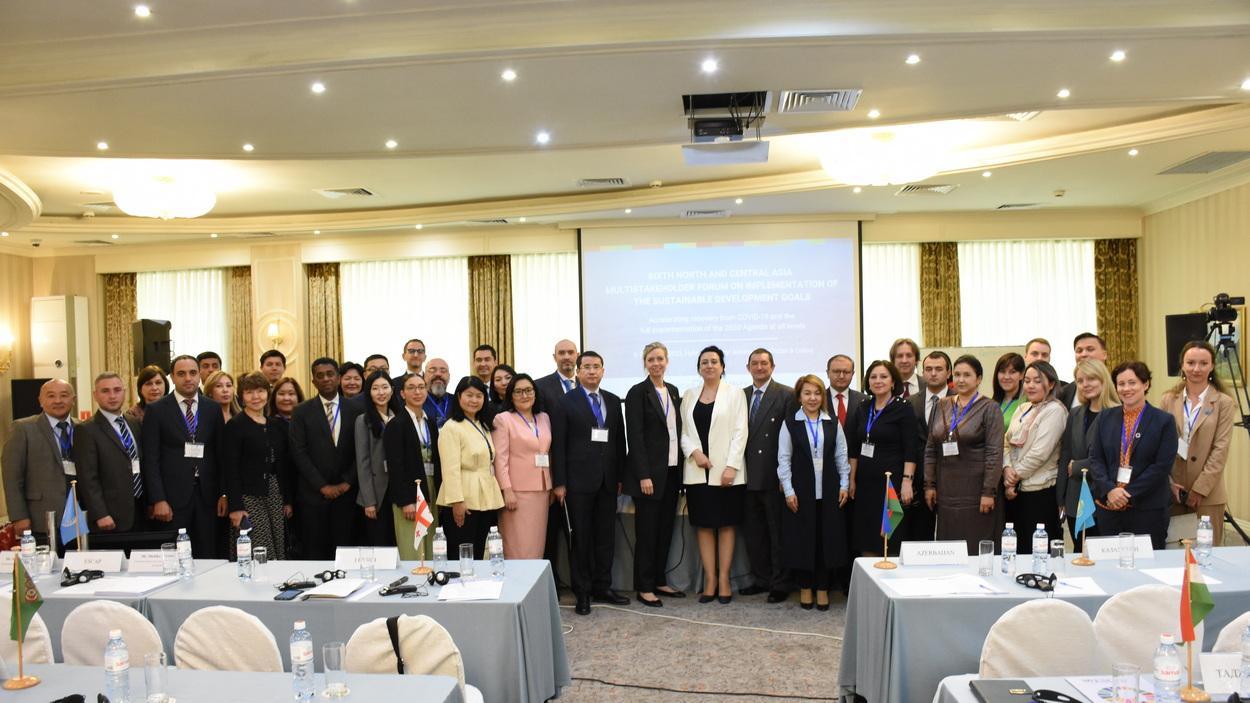The Sixth North and Central Asia Multistakeholder Forum on Implementation of the Sustainable Development Goals opened today (6 Oct) with delegates underscoring the need to work on formulating policies across the environment, social and economic sectors to safeguard the delivery of the 2030 Agenda for Sustainable Development.
“Recent developments show that the period of crises is far from over. COVID-19 recovery efforts in North and Central Asia have been hampered by geopolitical crisis, followed by higher energy prices, inflations, reduction of remittance incomes, and shipping and transport disruptions,” said Armida Salsiah Alisjahbana, United Nations Under-Secretary-General and Executive Secretary of the Economic and Social Commission for Asia and the Pacific (ESCAP) opening the forum.
North and Central Asia is currently not on track to achieve the Sustainable Development Goals by 2030. Widening disparities have been recorded in the subregion amid the COVID-19 pandemic. Inequality persists in access to education, while regressing trends have also been observed for several environmental-related Goals.
“Today, we face a variety of regional challenges that, by addressing them, could bring us closer to achieving the SDGs by 2030. Therefore, we must joint our efforts to develop more effective policies and practical solutions for the benefit of each Central Asian country,” – said Abzal Abdikarimov, Vice-Minister of National Economy of the Republic of Kazakhstan.
More than 270 officials and other stakeholders from 34 countries are taking part in the Forum to share their views and provide recommendations on how to accelerate the progress towards SDG6 (clean water and sanitation), SDG7 (affordable and clean energy), SDG9 (industry, innovation, and infrastructure), SDG11 (sustainable cities and communities) and SDG17 (partnerships for the Goals).
Gwi Yeop Son, Regional Director for Europe and Central Asia, UN Development Coordination Office shared: “Countries cannot work in isolation to deal with the challenges they face. Reinforcing connections matters. Connections between countries, in terms of transport, trade and energy infrastructure play important role. Partnerships between groups of countries around the world have demonstrated that greater integration is the road to prosperity”.
During thematic sessions, participants are expected to develop concrete recommendations on, among others, strengthening transboundary cooperation for ecologically sound management of freshwater resources; further investments in research and development, digital transformation and technology-based solutions to foster innovation; as well as addressing the current trend of population growth to make cities and human settlements inclusive, safe, resilient and sustainable.
Inputs from this year’s subregional meeting will also feed into the Asia-Pacific Forum on Sustainable Development (APFSD) and global High-Level Political Forum (HLPF) in 2023. ///UNESCAP, 6 Oct
